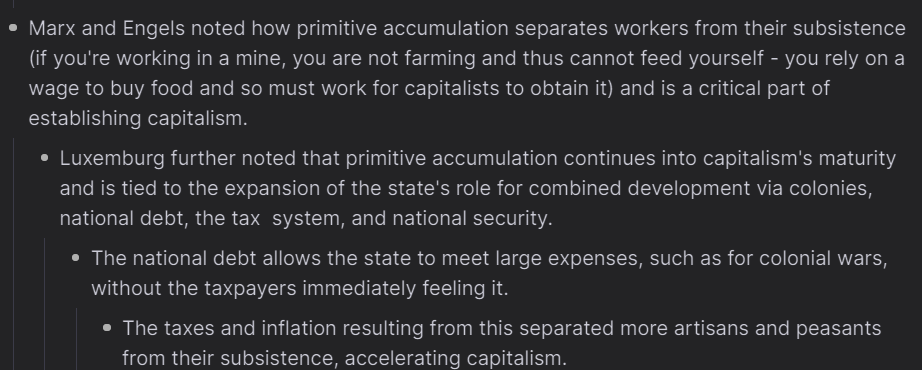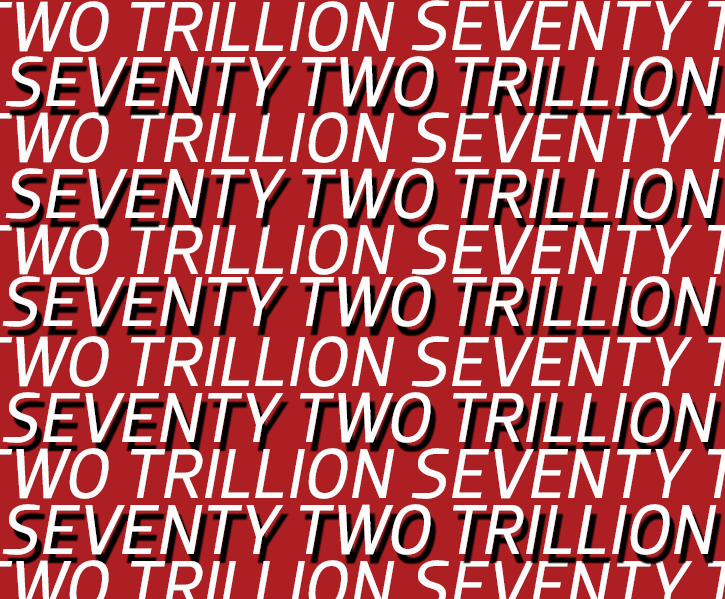
As an example of how I take notes (in Remnote), this is a paragraph from Desai’s Geopolitical Economy (2013):
“Part 8 of Capital Volume I, devoted to ‘The so-called primitive accumulation’, famously underlines the state’s critical role in establishing capitalism by separating workers from their subsistence. However, not only does such primitive accumulation continue into capitalism’s maturity (Luxemburg, 1913/2003; Harvey, 2003), it is closely tied to the expansion of the state’s role for combined development through ‘the colonies, the national debt, the modern tax system, and the system of protection’. The national debt permitted the state to ‘meet extraordinary expenses [such as for colonial ventures] without the taxpayers feeling it immediately’ while the resulting taxes and wage goods inflation separated more artisans and peasants from their subsistence. The effectiveness of this system of primitive accumulation was further heightened by the ‘system of protection, which forms one of its integral parts’ (Marx, 1867: 921).”
and these are my unedited notes for that paragraph:

my notes are only like 10% shorter than the actual thing right now (thanks to me adding a brief example/explanation, which is extending it) but I’ve actually reduced like half the wordcount of the chapter as a whole when accounting for wordier/extraneous paragraphs, while also making it more readable to me, and I haven’t even editted it down and glued together sections that are similar yet. You can get some even better compression on less dense books, but this is one of the denser ones.
An added benefit is that as you get more and more books in there, you’ll perhaps notice that certain subjects are brought up a lot and so you can, using RemNote at least, create entries/mini-documents/whatever you want to call them, dedicated precisely to that topic, giving a basic overview. Books on many Western countries’ recent politics will probably bring up the 2008 financial crisis for example, and that might be explained from scratch in each book, so instead of having like 10 different note sets each with its own distinct set of paragraphs on an overview of the timeline of the financial crisis overall, you can just have a single version and save some words and time.







very proud of you!
not gonna tell you whether to make a financial decision like that but I guess whether it’s a good idea or not depends on why exactly you like driving motorcycles, over, say, a car or a regular bike (if the commute is feasible with one where you live).
as in, if it’s for the thrill of driving it, if you really wanna save money and not get one then perhaps you can replicate that thrill somewhere else and feel a bit better about not getting one? if any other activity wouldn’t be the same then maybe go for it? same process for other factors like cost or easier parking or so on